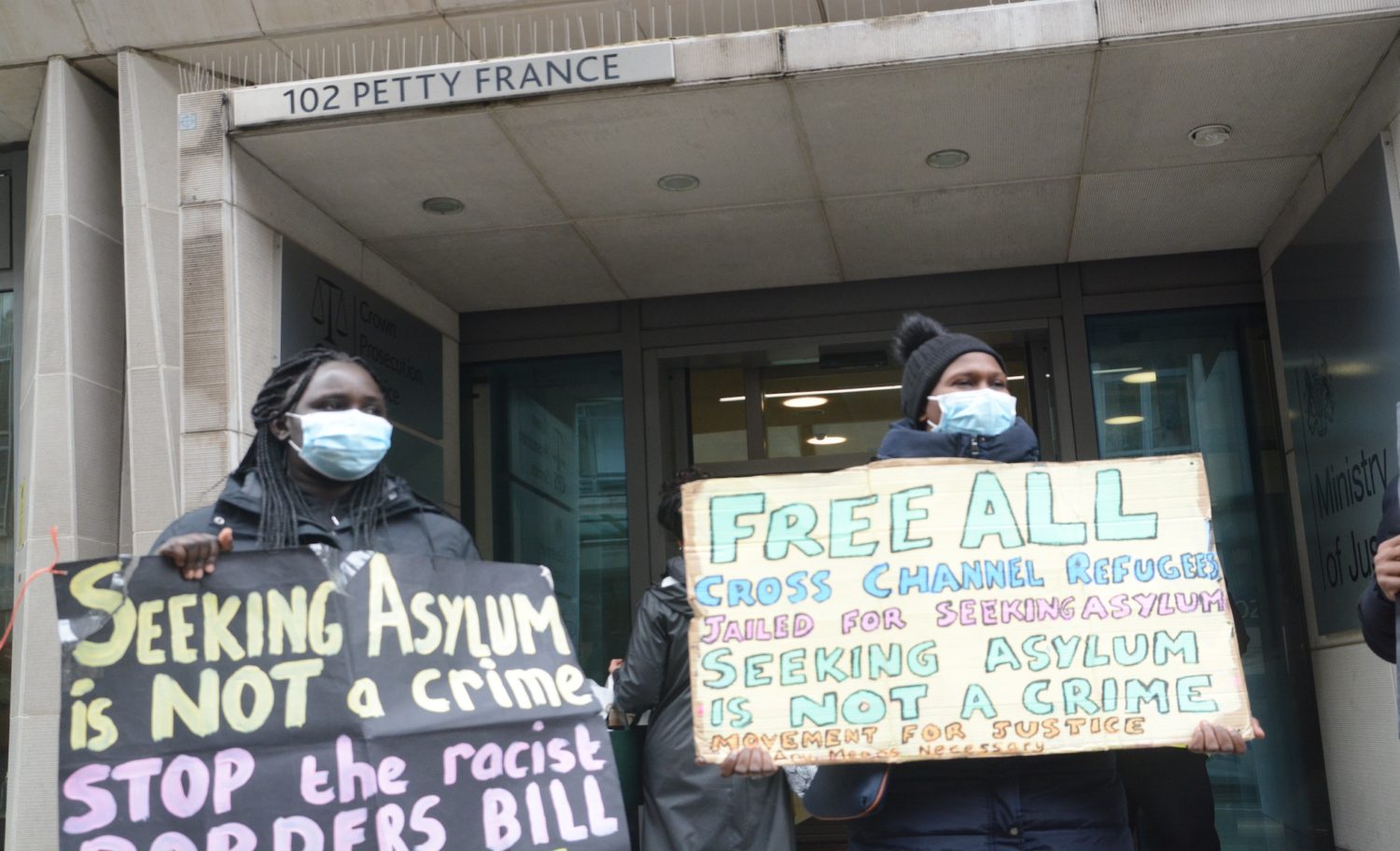A safety net for all
Ten years ago today, Theresa May announced plans to create a hostile environment for migrants – a policy which has caused untold harm. To protect migrants and refugees Labour must pledge to end the use of no recourse to public funds, writes Pascale Robinson
This March, after years of pressure from schools, families and campaigners, the Department for Education announced that free school meals will be extended to all families affected by “no recourse to public funds” below a certain income threshold.
The government also confirmed that it would extend free school meals to families with ‘irregular’ immigration status, sometimes referred to as people who are ‘undocumented’. There are big questions about how this will work in practice, but it represents a positive step forward – not just for the children who will benefit from it, but also for the wider fight for a kinder, more compassionate immigration system.
As campaigners mark 10 grim years of the hostile environment, this win has much bigger implications for what a progressive approach to immigration should look like.
‘No recourse to public funds’ is a condition placed on many people’s visas that prevents them from accessing the welfare safety net, even if they are living in deep poverty. There is extensive evidence about the harm this causes.
Prior to the Covid-19 pandemic, all children in families affected by no recourse to public funds were prevented from accessing free school meals because of their parents’ immigration status. At the onset of the pandemic – in recognition of the fact that many of these families were losing their incomes yet had no safety net to fall back on – the government rightly changed the rules so that some of these children could get free school meals. But uncertainty about whether this would be permanent has weighed heavily over the past two years.
The NRPF Action Group, which is facilitated by Praxis, is a group of people with lived experience of no recourse to public funds policies and the immigration system more widely. They campaign to abolish no recourse to public funds and, with Praxis’ support, launched a campaign earlier this year calling on Secretary of State for Education, Nadhim Zahawi MP, to ensure that all children who need free school meals can access them regardless of immigration status. Building on the efforts of families, schools and campaigners over the last two years, our campaign helped push the Department for Education into finally announcing this very positive policy change.
This win offers some key lessons for Labour.
First, the action group had a strong analysis of how to build solidarity and win fights against cruel immigration rules. The group highlighted that no child, regardless of their status, should go hungry, and purposefully included people who have irregular status in our calls to strengthen our arguments. The ‘Marcus Rashford effect’ supports this approach: making bold statements that resonate with what people instinctively know – that we all benefit when we support the most vulnerable – works.
Our campaign shows that the government has to respond to a shift created by our communities. The evidence is everywhere that the public now want to see a kinder response to people who migrate to the UK – it is up to politicians to listen.
With this in mind, what should Labour’s priorities for migrant justice be?
There is a lot to do. First, it is crucial that all schools know about the recent rule change so that every eligible child has access to free school meals. Labour activists can help share this knowledge in their communities.
We also need to keep up the pressure so that free school meals are truly accessible to all children affected by no recourse to public funds, including those who have insecure status. This means instituting a data-sharing firewall between the Department for Education and the Home Office.
No recourse to public funds means people are forced into traumatising situations. The policy punishes migrants indiscriminately, supposedly in the name of ‘saving money’ for the taxpayer. This means people are facing homelessness or staying in abusive relationships because they cannot access a refuge. It means being unable to work because they cannot access free nursery hours or child benefit.
Labour politicians have been at the forefront of the challenge to no recourse to public funds, with MPs like Stephen Timms leading debates and asking Boris Johnson clear-cut questions about the right to a safety net. There has also been brilliant work from the Refugee, Asylum and Migration Project (RAMP) which has been engaging politicians across the House, as well as from Thom Brooks with his recent Fabian Society pamphlet, New Arrivals, which called for people on the family route to have access to public funds.
Now Labour’s priority must be to build on this good work and scrap all of the hostile environment policies – and that means pledging to end the use of no recourse to public funds. This will ensure that, as our action group puts forward, “everyone has access to a safety net when they need it”. This is fairness.
And we can now say confidently that one of the main justifications for no recourse to public funds – saving money for the taxpayer – does not stack up. A recent cost-benefit analysis by LSE showed that scrapping the policy and protecting people from poverty would lead to a net gain of at least £428m over 10 years.
Shorter, more affordable routes to settlement are also urgently needed. Plus, Praxis and the NRPF Action Group will be calling for an end to extortionate visa fees and the punitive practice of making many families wait 10 or 20 years for permanent settlement. Currently, you can pay over £30,000 over 10 years for your family to have the stability and rights that many take for granted. This leaves many struggling to make ends meet. People are being forced into debt just to give their children the same things we all want: to keep loved ones safe and live their lives in peace. If Labour values family and hard work, ending these punitive rules in favour of a simpler five-year route has to be another priority.
Together with our allies in the sector, we will continue to resist the hostile environment. However in times like these, as Priti Patel promises her Rwanda plan will go ahead, the horizon can seem narrow. We hope Labour and the left will stand with these campaigners in their efforts to build a decent, caring society.
Image credit: Philip Robins on Unsplash

